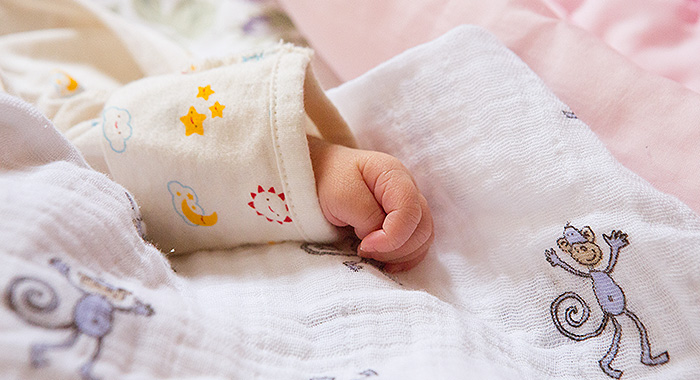Creating home: An Interview with our U.S. Resettlement Assistance Manager

While the majority of the North Koreans who come through our rescue network wish to resettle in South Korea, a small group choose to come to the United States. Drawn by family, friends, and new opportunities, they resettle all across the country. Because resettlement to the U.S. comes with its own set of unique challenges—mainly the language barrier—we have programs specially designed to help North Koreans find their footing in their first few years. Our U.S. resettlement manager Kris explains the details of the resettlement process and her work with LiNK in more detail.

Describe a normal day at your job.
What’s cool about my job is that no work day is the same. From helping a North Korean register for school to purchasing bikes for a family (both are things I have done very recently), every day is different. I travel quite often to visit refugees and to meet with partner organizations. I also spend a lot of time researching government and community benefits, changes in immigration laws, and educational resources. I will say that the two services I provide almost every day are translation and interpretation.

What do you enjoy most about your job?
The North Korean friends we work with are pretty awesome. It really is my privilege to be able to work with such an amazing group of people. I get to help them but I also learn so much. My job never gets boring. They challenge me to do more and be better. My colleagues at LiNK are pretty cool, too. =)
What is the most difficult part about your job? What was most surprising about the work you do?
The number of North Korean refugees who have resettled in the US is pretty small so people tend to put them in one group and form generalized opinions about them. But what I learned over the years and what some people might find surprising is that each person is so unique in their backgrounds, family dynamics, worldviews, reasons for defection, life goals and dreams. It’s challenging to be able to assess and meet their differing needs and help them reach not only self-sufficiency but also the eventual self-actualization and fulfillment. But I’m proud of the individualized and flexible case management that we have been able to offer to the people we serve. As we expand our work, I hope we will continue to have capacity to offer individualized care.

What are some of the challenges that our North Korean friends face as they resettle here in the US?
There are so many. Most common ones would be language and cultural barriers. Access to transportation is a huge challenge because although many states offer driver’s license exams in Korean, there are some that don’t, so the refugees have to learn English first in order to take the driver’s license exam. Some of the more recent and regionally-specific challenges are lack of affordable housing and immediate employment opportunities.

What are some of the challenges in running a North Korean refugee post-resettlement program here in the United States?
The fact that the people we work with are scattered all over the country makes it difficult to do anything in-person. Geography has always been the biggest challenge for me because I’d love for us to be more accessible to the refugees and do more in-person programs with them. Most refugee agencies serve local communities because it’s difficult to be a direct service provider from afar. We have to be creative to stay connected to the people we serve. One good thing that the pandemic did was normalizing virtual communication, and we were able to successfully execute an entrepreneurship program and a mentorship program virtually during the pandemic.
What was one of your most memorable events in this role?
Not long after one of our clients died in a car accident, I flew out to see her minor children. I knew that no words would bring comfort to them at that point. I took them out to see a movie and we went to get our nails done. Of course, we got some boba afterwards. Then per their request, we went out to a hot pot restaurant for dinner, and there we ran into some people from their church. The people assured me that the children will be taken care of and the community will be there for them. I went out there to bring some comfort for the children, but instead, I was the one that was comforted more than anyone. It’s just one of those days that I’ll always remember.

What is something you wish the world knew about North Korea or the North Korean people?
Maybe I can just say something about the North Korean refugees, rather than the entire country of North Korea or the North Korean people inside the country. North Korean refugees, in their defection and resettlement process, have gone through so many unimaginable obstacles and have overcome them with such incredible resilience and determination. I believe that they have this amazing potential to overcome any barriers and to succeed in their new life. I hope the whole world understands this and welcomes the refugees with open arms.
Challenges of Freedom
Four North Korean defectors' experiences of resettling to South Korea.
It was the greatest country in the world. Sure, sometimes they saw people die from starvation and heard rumors of people disappearing into prison camps, but it was like that everywhere. At least that’s what they were told. But as foreign media started to spill into the country, they realized it wasn’t like that everywhere; they weren’t living in the greatest country in the world. A better life was out there and they knew they needed to leave to find it.
Every year, many North Koreans risk their lives to escape one of the world’s most oppressive regimes. They trek through jungles and over mountains, terrified of being caught and sent back. Once they finally reach freedom, they start over. New cultures, new opportunities, new challenges.
Here are four of their stories.

Ill Yong
Ill Yong opens Google Maps, trying to find a satellite image of his childhood house. This always makes him homesick. When he zooms in on his house, a blurry gray square surrounded by snow, he remembers the nearby waterfall and the summer days he spent playing there. But he also remembers how hard it was living in North Korea. His family listened to illegal South Korean radio every night but had to keep it hidden from friends and neighbors. If caught, they could have been sent to a political prison camp or even executed.
Ill Yong resettled to South Korea in 2009 and, even though his family was with him, starting over in a new country was challenging. The everyday moments took adjusting to. His first time at a buffet, Ill Yong was so overwhelmed by the massive amount of food that he just took a small bowl of rice. The first time he tried to use an escalator he was so confused about what to do that he jumped on at the bottom and then jumped off at the top. Ill Yong has now been in South Korea for nine years and is studying to become a Human Rights lawyer. A lot has changed since he first arrived (he now knows how to get on an escalator) but he still thinks about his old home in North Korea and hopes to see it again in person one day.

Noel
Noel came to South Korea in 2010 with a shy personality and a strong North Korean accent. She wanted to blend quietly into her new culture, but people constantly asked where she was from. School was also a struggle. In North Korea, she had dropped out after the first grade to stay home and help her mother. What she did learn at school was of little help in her new life. She was used to curriculum that focused on the Kim family. Determined to catch up, she began reading lots of books.
Noel is currently studying to become a writer and is no longer behind in school. Her new challenge is figuring out what to do with her freedom. Living in North Korea, she just followed the regime and did whatever she was told. It was the only option. Now, faced with endless choices, she knows that there is a responsibility that comes with freedom, and she wants to use it wisely.

Jessie
Jessie was overwhelmed. She was by herself in an unfamiliar country. So much was unknown: how to get around, where to study, how to make new friends, and even where to buy groceries. She wasn’t used to this new culture’s rules and norms. The first time she heard someone publicly criticize the South Korean president she was stunned. Freely expressing any negative thoughts about the regime was unheard of in North Korea.
Jessie now understands her new culture and loves her freedoms, especially being able to watch whatever dramas she wants without fear of punishment. South Korea has become her home, but she still longs for the day she can return to North Korea. Her parents have both passed away and she wants to go and pay her respects in person.

Geum Hyok
Geum Hyok stood by himself in an empty apartment wondering if he made a mistake. He had no friends and no family there to reassure him. Feeling lonely but determined to make a life for himself, he started classes at Korea University where he met people who were kind to him and checked on him regularly. Their friendship helped him not feel as lonely. Except for the couple times he was turned down for a job because they didn’t want to hire a North Korean, most people were welcoming to him. But what surprised him most was how many South Koreans didn’t know what was happening in North Korea. Geum Hyok didn’t blame them, he knew humans rights was complicated. But it was still disappointing.
Now, Geum Hyok is studying politics and diplomacy and enjoys having the freedom to do what he wants. He no longer questions his choice to escape but he does think about his loved ones still in North Korea. He especially misses his mother whom he hasn’t seen or spoken to in eight years. He is waiting for the day North Korea finally opens so they can be reunited.




